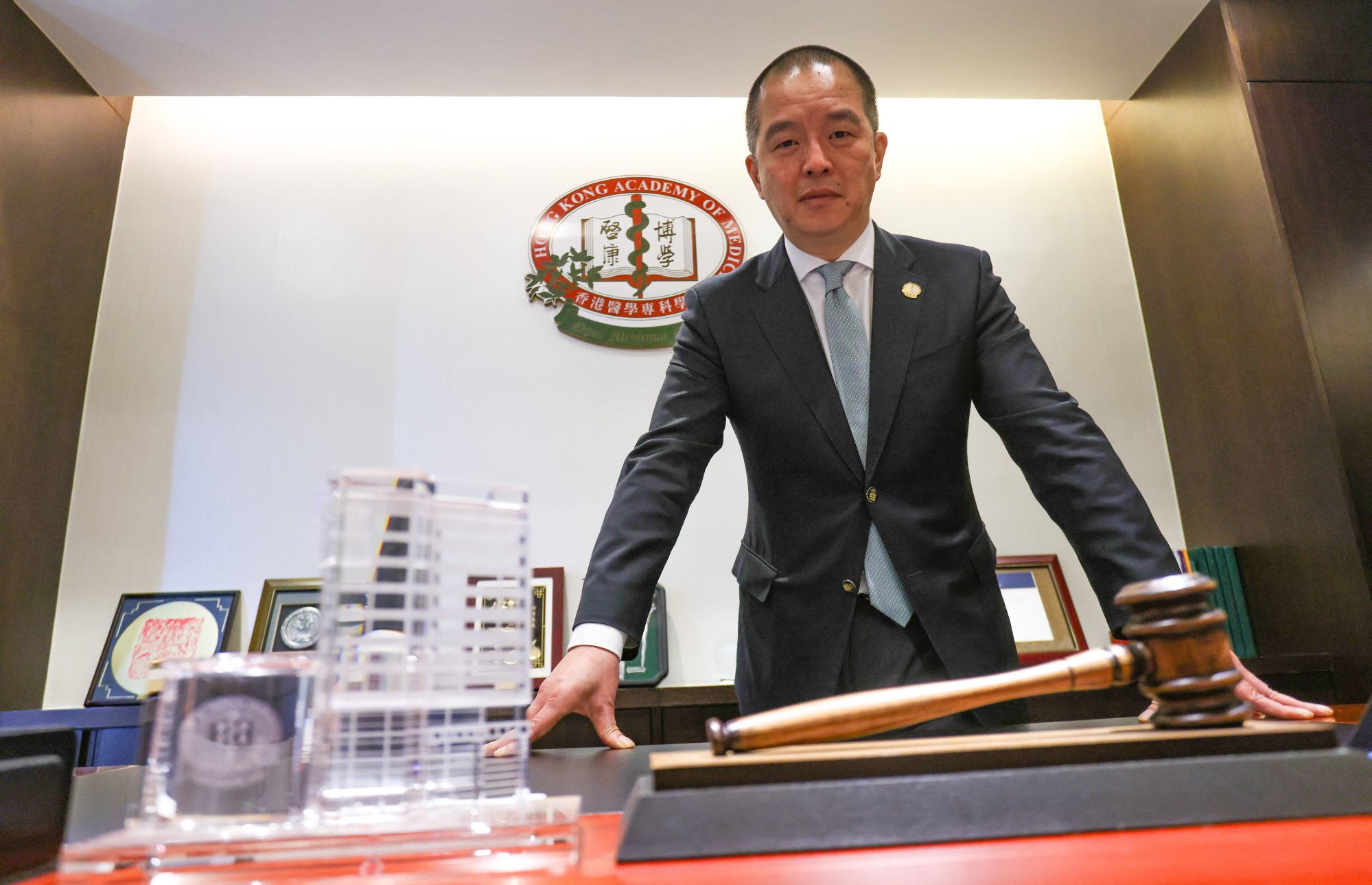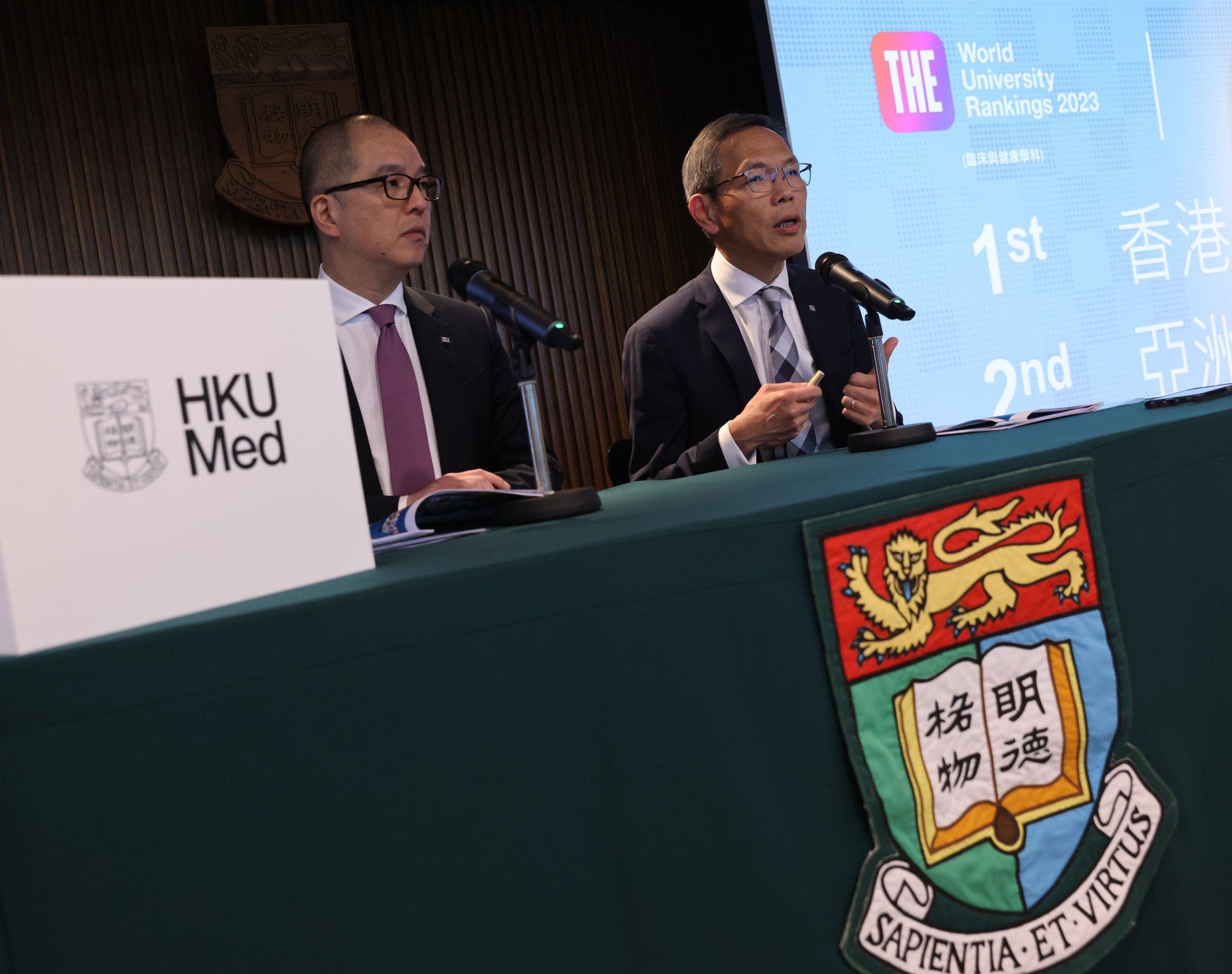
University of Hong Kong to launch shorter degree track for outstanding medical students
- Medical faculty says option will cater to high-achievers determined to quickly join public healthcare system
- Scheme will allow students to complete third-year enrichment activities early, shaving down time to graduate from six years to five
Outstanding medical students at the University of Hong Kong (HKU) will be able to complete their degrees in five years instead of six under a revamped undergraduate programme set to launch in September.
The university’s faculty of medicine on Wednesday said the five-year option would cater to high-achievers determined to quickly join the city’s public healthcare system, but warned the scheme could do little to immediately alleviate the shortage of doctors.
Data from the Health Bureau provided to the Legislative Council on March 15 showed public hospitals were contending with a lack of staff, after losing 1,247 doctors between April 2020 and the end of 2022, with only 15 per cent of them retiring.

The current curriculum at HKU spans six years, including a third year enrichment programme covering a range of learning activities chosen by students, including humanitarian work, overseas exchanges and research projects.
Following the revamp, students who achieve outstanding results in their college entrance exams and perform well in admission interviews will be eligible to do something else that year.
One of the two choices is to begin clinical clerkships typically offered in the fourth year, but students will then need to integrate the enrichment experience with their first two years of study, for example, by pursuing a research project during semester breaks or on weekends.
Chinese researchers in US ‘eyeing medical teaching jobs at University of Hong Kong’
Professor Gilberto Leung Ka-kit, associate dean for teaching and learning at the medical faculty, stressed the new pathways would not compromise the training of future doctors.
“If they choose the five-year track, it does not mean they can study less, and the standard of our students will not be affected,” he said, explaining the option was for those who were “keen and ambitious to flourish”.
“This is a challenge for our students, and not many will pick this path, so it will not affect [the manpower supply] as a whole, but only help certain individuals.”

Under the new approach, students can also pursue a one-year master of research in medicine offered during the enrichment year, covering clinical and laboratory research skills.
Those pursuing the second option can obtain a scholarship to pursue a doctorate at a top overseas medical school upon graduating from HKU, with the chance to join the university’s medical faculty as a clinical assistant professor.
Leung said the new programme would be highly flexible, with students able to switch to the research path in the middle of their first year.
Those who had not performed well in the entrance exam but showed strong potential during their first year would also have a chance to join the research path, he added.
The faculty said 30 students were expected to take the new options each year.
University of Hong Kong medical school to spend HK$1 billion on campus expansion
The associate dean also revealed a 49-week assistant internship programme would be launched for final-year students as soon as 2026, helping them to adapt to working in public hospitals before starting their one-year internship.
The same programme would also be launched for Chinese University medical students.
Another highlight of the revamp is the introduction of virtual dissection tools to help students learn anatomy.

Dr Yang Jian, a senior lecturer at HKU’s School of Biomedical Science, said one of the biggest challenges when learning anatomy was visualising complex body parts, and the new tools would get around a lack of medical cadavers or clinical exposure.
Each fourth year student is also set to receive a portable ultrasound device, which they can take home for practice.
Hong Kong hospitals chief ‘to lure city’s medical talent back home during UK trip’
Professor Lau Chak-sing, HKU’s dean of medicine, said the revamp was aimed at offering more options for outstanding students, rather than trying to compete with Chinese University, which had attracted more top scorers than HKU in recent years.
“Some students perform exceptionally well and we wish to help them further develop their talents,” he said. “They can achieve a greater depth, with a greater outcome, and within a shorter time.”

